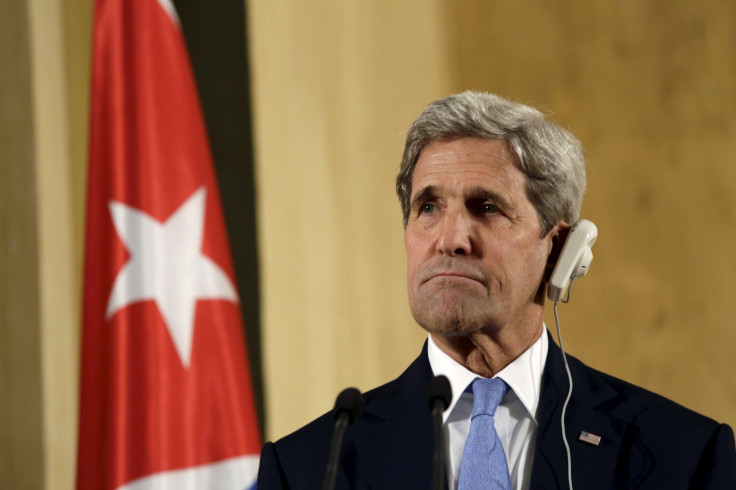
Secretary John Kerry spoke in Havana today while Marines raised the American flag over the U.S. Embassy for the first time since 1961 . Addressing a crowd of Cuban and American dignitaries, Kerry touted renewed diplomatic ties as a sign that the two countries aren’t prisoners of the past . America’s policy revamp and detente with Cuba has already produced tangible changes in the way it’s citizens can interact with the island. U.S. Citizens can now travel more easily to the island, send more money to relatives living in Cuba and bring back increased quantities of Cuban goods like cigars and rum.
American businesses have a little more leeway to do business in Cuba and, as Hillary Clinton pointed in a recent campaign stop, internet companies like Airbnb are moving in. Because of the trade embargo, actual physical goods Cuban goods can’t be resold in the U.S. Only congress has the ability to end the embargo, but that’s unlikely to happen before Obama leaves office. In the meantime, John Kerry and the U.S. State Department with likely discuss a number of outstanding issues that the White House can deal with on its own.
1) Direct Flights
Jetblue operated a direct flight from New York to Havana in June, but there’s a big asterisk on the historic nature of the trip. Passengers on that flight still had to book it through a middleman. Flights to Cuba are still chartered, meaning much higher costs for travelers. Unless they book from outside the country, and run through a foreign city, Cuba visitors can’t book flights on discount sites like Kayak, Cheap Air, etc. Kerry has signaled that the issue of normal flights will be discussed in the coming months.
2) Ferry Services
The U.S. has already approved about a dozen ferry routes in southern Florida that could take passengers across the 90-mile stretch of ocean separating it from Cuba. Authorities in Havana have not yet approved those voyages yet, and the ferry companies aren’t sure when that could happen. If approved, the ferry trips could sidestep the direct flight issue, as travelers could simply fly to Miami and hop on a boat
3) Snail Mail
Direct mail service between Cuba and the U.S. has been actively discussed since at least 2013 and has been banned since 1963, according to Reuters . Email access is extremely limited on the island, where internet is restricted by infrastructure and totalitarian politics. Printed letters are still a key form of communication. Packages and letters can still reach Cuba, but they have to be routed through other countries like Canada. As with air travel, the ban results in increased expenses.
4) Political Freedoms
“As much as we look forward to increasing our diplomatic engagement with the Government of Cuba,” Deputy State Department Spokesperson Mark C. Toner said ahead of Kerry’s trip, “we’re well aware of the challenges that we face on the human rights sphere and we’re not going to shy away from addressing those challenges and continuing to meet with key members of civil society in Cuba.”
Kerry is scheduled to meet with Cuban political dissidents on Friday.
© 2025 Latin Times. All rights reserved. Do not reproduce without permission.



